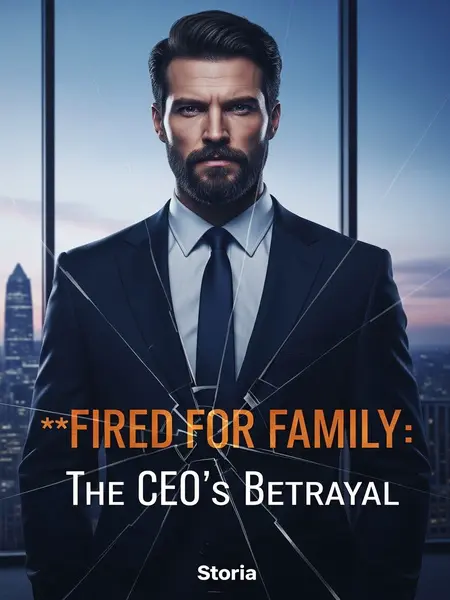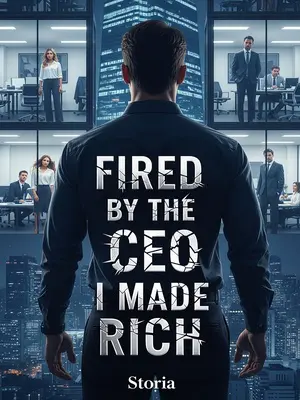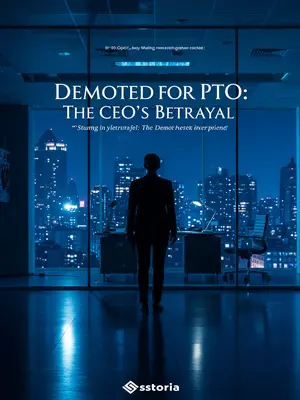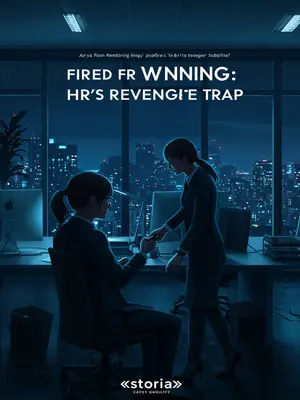Chapter 4: Erased and Replaced
Holding back my anger, I returned to the group office area, only to find my former private office had already been turned into a project office, with several people working inside.
It hit me like a punch in the gut. My name was already scraped off the door. The new team didn’t even make eye contact—just kept typing, pretending not to notice the ghost in the doorway.
When they saw me, one of them nervously came over and said that due to a shortage of desks, they had to take my office. He’d moved my personal things to an open workstation outside and asked me to make do.
He looked apologetic, voice barely above a whisper. I nodded stiffly, scooping my boxes and a battered coffee mug into my arms. Even my family photo had been shoved haphazardly into the pile.
I kept a straight face and didn’t make things difficult for him. But as soon as I sat down, notifications popped up on my phone:
[You have been removed from the group management chat by the administrator.]
[You have been removed from the project team group.]
[You have been removed from the finance group.]
…
Each ping on my phone felt like a nail in the coffin. By the time the last group booted me, my hands were shaking.
I found my employment contract and sent it to a lawyer friend.
My hands shook as I scanned the PDF, firing it off with a hasty note. There was no pride left to protect—just a last hope for fairness.
At this point, I had nothing to be embarrassed about, and asked if I could sue the company.
I typed out the question bluntly: Do I have a case? The answer came back fast.
He replied quickly: it would be very difficult.
From a labor law perspective, the company compensating me two months’ pay plus one based on my contract salary is completely legal.
As for anything above the state average wage cap, there’s basically no chance of recovering it.
I read his response twice, the words blurring at the edges. I could practically hear his sigh through the text. The law wasn’t on my side—nothing new there.
Just then, Mike Wu—the finance guy who’d gone with me to the new project—came over to smoke with me in the parking lot.
The air outside was crisp, the kind that bites through your jacket. Mike tapped a pack of Marlboros against his palm before offering me one. We stood by the dumpsters, the only place in the lot the cameras didn’t reach.
He was actually a distant cousin of the boss. After the project company was set up, he was quickly transferred back to group finance. But he’d worked closely with me for over two months and knew how much I’d poured into the project. I’d looked out for him, too.
He exhaled a plume of smoke, looking everywhere but at me. "Tough break, Jake. You didn’t deserve this." There was honesty in his eyes that made the whole thing sting a little less.
He pulled me aside and said, “Jake, we all know what’s happened to you. Even though I’m related to the boss, I still think you’ve been treated unfairly.”
He shifted his feet, glancing around to make sure no one was listening. "Doesn’t matter whose blood I share—I know a raw deal when I see one."
I actually comforted him, telling him to just do his job, that we’d still be friends.
It was strange, playing the big brother while my own career was in flames. But I meant it—sometimes all you can do is keep your dignity.
He told me business was really bad this year—except for my project, the group’s cash flow was a mess.
He explained that the higher-ups were scrambling, robbing Peter to pay Paul. Vendors were getting antsy, and the mood in finance was more like a funeral than an office.
He’d overheard from HR’s relatives that in Q4, Bill made everyone swear to cut personnel costs by 50%, and the company really did lay off a lot of people.
Mike’s voice dropped. "They called it an efficiency drive, but it was a bloodbath. Even the janitors were worried for their jobs."
I sneered. In their eyes, cutting me out would save a lot.
My salary alone could float a dozen entry-level hires. I was a rounding error in their balance sheet, but the savings looked good on a year-end report.
Then he shared the real inside scoop: after the New Year, the boss’s nephew, Ryan Jensen, would take over my project. Now that it was up and running, they figured they didn’t need me anymore.
Mike looked me in the eye, as if to say, I’m sorry. “They always planned it this way.” It wasn’t personal—it was family business, plain and simple.
Only then did I finally see Bill’s game—using me to build the bridge, then burning it to make way for his own family.
I remembered Bill’s handshake at that steakhouse—firm, confident, full of promises. Now it just felt greasy.
As the cigarette burned down to the filter, I realized just how replaceable I’d been from the start.













